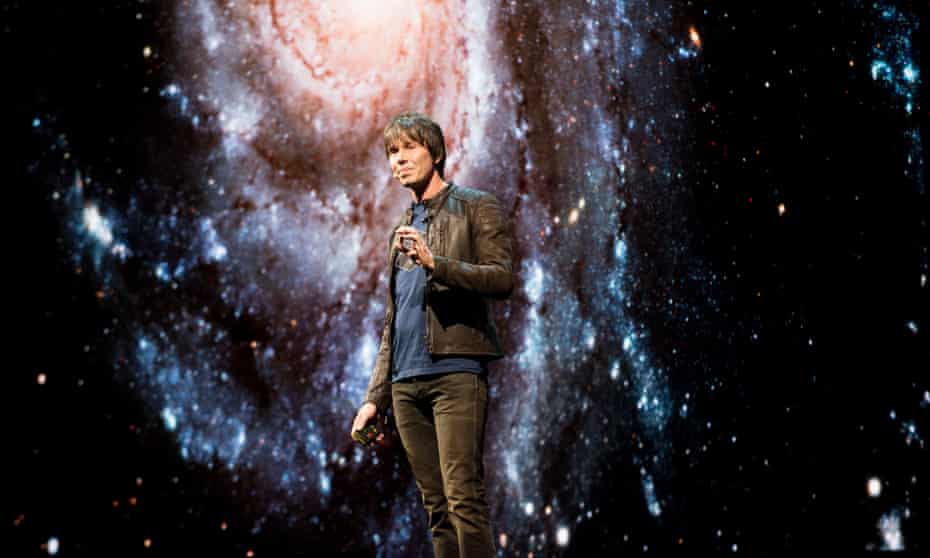Earth’s demise could rid galaxy of meaning, warns Brian Cox ahead of Cop26
Unique events that led to civilisation mean its demise could ‘eliminate meaning in galaxy for ever’

Humans might be the only intelligent beings in our galaxy, so destroying our civilisation could be a galactic disaster, Prof Brian Cox has warned leaders in the run-up to Cop26.
Speaking at the launch of his new BBC Two series Universe, the physicist and presenter said that having spoken to the scientists around the world advising the show, he thought that humans and sentient life on Earth “might be a remarkable, naturally occurring phenomenon” and that was something that “world leaders might need to know”.
In Universe, Cox explores the idea of the so-called “Goldilocks” theory, which suggests that our planet’s location in relation to the Sun and the unique events over billions of years that created Earth made it “just right” for meaningful life to bloom and evolve.
“What we’ve discovered – I think it’s a reasonable working assumption – is that there are very few civilisations per galaxy,” said Cox.
When asked how important that discovery was for politicians dealing with the climate crisis, Cox said: “I think sometimes that perspective is necessary.
“I would say if our civilisation doesn’t persist, for whatever reason, and it might be an external event or it might be our own action, nuclear war, whatever it is we decide to inflict on ourselves, it is possible that whoever presses that button eliminates meaning in a galaxy for ever.
“And I think that’s something I would think world leaders might need to know. It might actually be quite an important act.”
He went on: “The more I learn about biology … the more astonished I am we exist at all”, adding that while astronomers said there were about 20bn Earth-like planets in the Milky Way galaxy, “so we might expect life to be everywhere”, “almost every biologist I speak to says, ‘Yes, but all it will be is slime at best.’ We live in a violent universe and the idea you can have planets which are stable enough to have an unbroken chain of life might be quite restrictive.”
Cox said there were very few places “where atoms can think … Meaning exists in our minds”, so the demise of Earth could wipe out meaning.
“If you accept that meaning is something that emerges from sufficiently complex biological machines, then the only place those machines might exist is here; then it’s correct to say that if this planet weren’t here, we’d live in a meaningless galaxy. That’s different to life. There’s a difference between life and intelligent life.”
He also said there was an idea called the “great filter”, which suggested that “civilisations don’t have a long life. It could be that the challenges of industrialising a civilisation are too great and actually our wisdom lags behind our knowledge or capability, and we’re not able to handle this transition to a space-going civilisation.
“Climate is [also] a challenge … there are many challenges that civilisations face as they acquire knowledge and capability and it might just be that there’s a natural lifetime for civilisations.”
In Universe, Cox – who was part of the band D:Ream, which created the optimistic anthem Things Can Only Get Better – explains how stars are not immortal and one day the universe will return to darkness.
He said some of his ad-libs during Universe were more philosophical and “religious than I intended” than in his previous series, and that was because he wanted to explore why we cared about stars and the part they played in creating life.
In the first episode he calls the stars “mortal gods” and, watching a sunrise, says: “If you’re looking for gods, you don’t need to look any further, because these are the real things.”
About 1 billion people globally have seen The Planets, and Universe will also be shown around the world. Most of this series was shot in the UK due to lockdown, which Cox said gave it a different character from his previous shows.
-
Universe starts on BBC2 on 27 October
